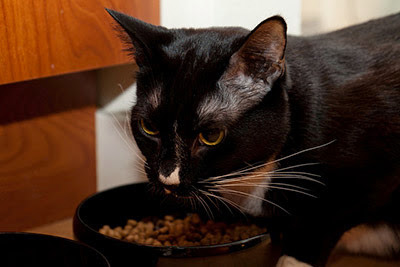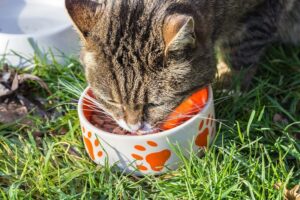
A Comprehensive Guide to the Best Cat Food for Indoor Cats
Introduction:
Cats are beloved companions, and their well-being is a top priority for pet owners. For indoor cats, nutrition plays a crucial role in maintaining overall health and preventing common issues associated with a sedentary lifestyle. Choosing the right cat food is essential to ensure your feline friend receives the proper balance of nutrients. In this comprehensive guide, we’ll explore the best cat food options for indoor cats, considering their unique needs and dietary requirements.

Understanding the Indoor Cat’s Lifestyle:
Indoor cats lead a more relaxed and less active lifestyle compared to their outdoor counterparts. The lack of natural hunting and exploration can lead to weight gain, boredom, and other health issues. To address these concerns, it’s crucial to select cat food that supports their specific needs.
Key Considerations best Food for Indoor Cats :
Protein Content:
Indoor cats require a higher protein intake to maintain muscle mass and overall health. Look for cat foods with a protein content of at least 30%. High-quality protein sources such as chicken, turkey, and fish are essential for meeting a cat’s dietary requirements.
Moderate Caloric Density:
Since indoor cats are generally less active, it’s essential to avoid overfeeding to prevent weight gain. Opt for cat foods with a moderate caloric density, providing enough energy without promoting excessive calorie intake. This helps maintain a healthy weight and reduces the risk of obesity-related issues.
Omega-3 Fatty Acids:
Omega-3 fatty acids are beneficial for a cat’s skin, coat, and overall well-being. Look for cat foods that contain sources of omega-3 fatty acids, such as fish oil or flaxseed. These nutrients contribute to a shiny coat and support cardiovascular health.
Fiber Content:
Indoor cats may face issues like hairballs and constipation due to reduced physical activity. A cat food with an appropriate fiber content can aid in digestion and prevent hairball formation. Ingredients like beet pulp and cellulose are good sources of dietary fiber.
Limited Fillers and Additives:
Opt for cat foods with minimal fillers, artificial preservatives, and additives. Cats thrive on diets rich in real meat and quality ingredients. Avoid foods that rely heavily on grains and by-products, as these may not provide the essential nutrients your indoor cat needs.
Top Picks for the Best Cat Food for Indoor Cats:
Hill’s Science Diet Indoor Dry Cat Food:
Hill’s Science Diet offers a specialized formula for indoor cats, addressing their unique nutritional needs. With a focus on lean proteins and controlled calorie content, this dry cat food supports weight management and overall health. It also includes antioxidants for a robust immune system.
Blue Buffalo Indoor Health Chicken & Brown Rice Recipe:
Blue Buffalo is known for its high-quality ingredients, and their Indoor Health formula is no exception. Featuring real chicken as the main ingredient, this cat food provides a balanced mix of proteins, fats, and carbohydrates. It also includes LifeSource Bits, a blend of antioxidants, vitamins, and minerals for optimal feline health.
Royal Canin Indoor Adult Dry Cat Food:
Royal Canin understands the unique needs of indoor cats and has developed a specialized formula to meet those requirements. This cat food promotes digestive health with a combination of prebiotics and fiber. It also helps manage hairballs, a common concern for indoor cats.
Purina Pro Plan Focus Indoor Care Salmon & Rice Formula:
Purina Pro Plan’s Indoor Care formula is designed to support the health of indoor cats. With real salmon as the primary protein source, it provides essential nutrients for muscle maintenance and a healthy coat. This cat food is rich in omega-3 fatty acids for skin and coat health.
Iams ProActive Health Indoor Weight & Hairball Care:
Iams ProActive Health offers a well-balanced formula for indoor cats, addressing weight management and hairball control. With a blend of fibers and a controlled calorie content, this cat food helps keep indoor cats in optimal condition. Real chicken is a key ingredient, ensuring a high-quality protein source.
Conclusion:
Selecting the best cat food for indoor cats involves careful consideration of their unique lifestyle and nutritional requirements. Prioritize high-quality protein sources, moderate caloric density, and essential nutrients like omega-3 fatty acids. The top picks mentioned in this guide are excellent options that cater to the specific needs of indoor cats, promoting overall health and well-being. Remember to consult with your veterinarian to tailor your cat’s diet to their individual health needs and preferences. With the right nutrition, your indoor cat can thrive and enjoy a happy, healthy life by your side.


